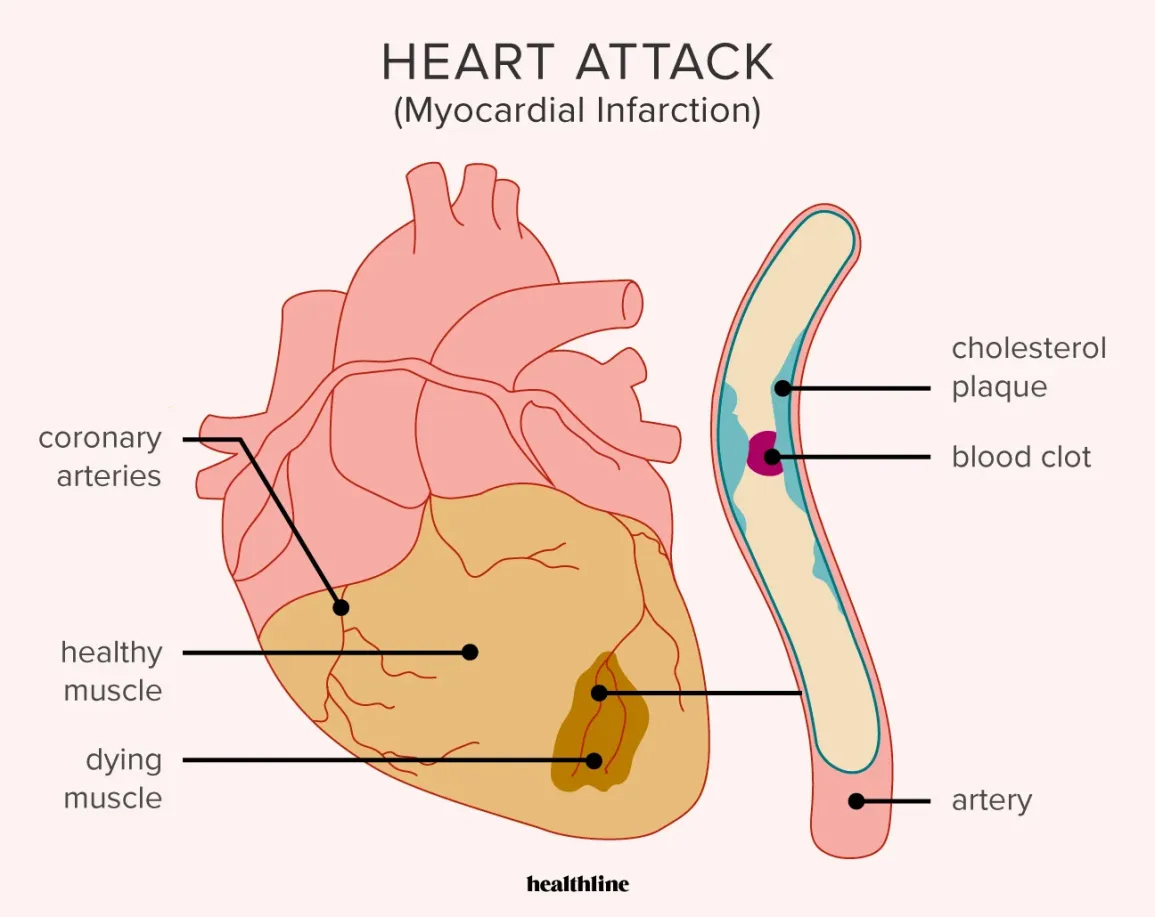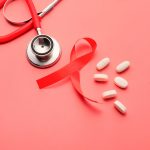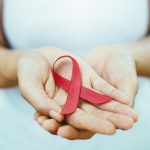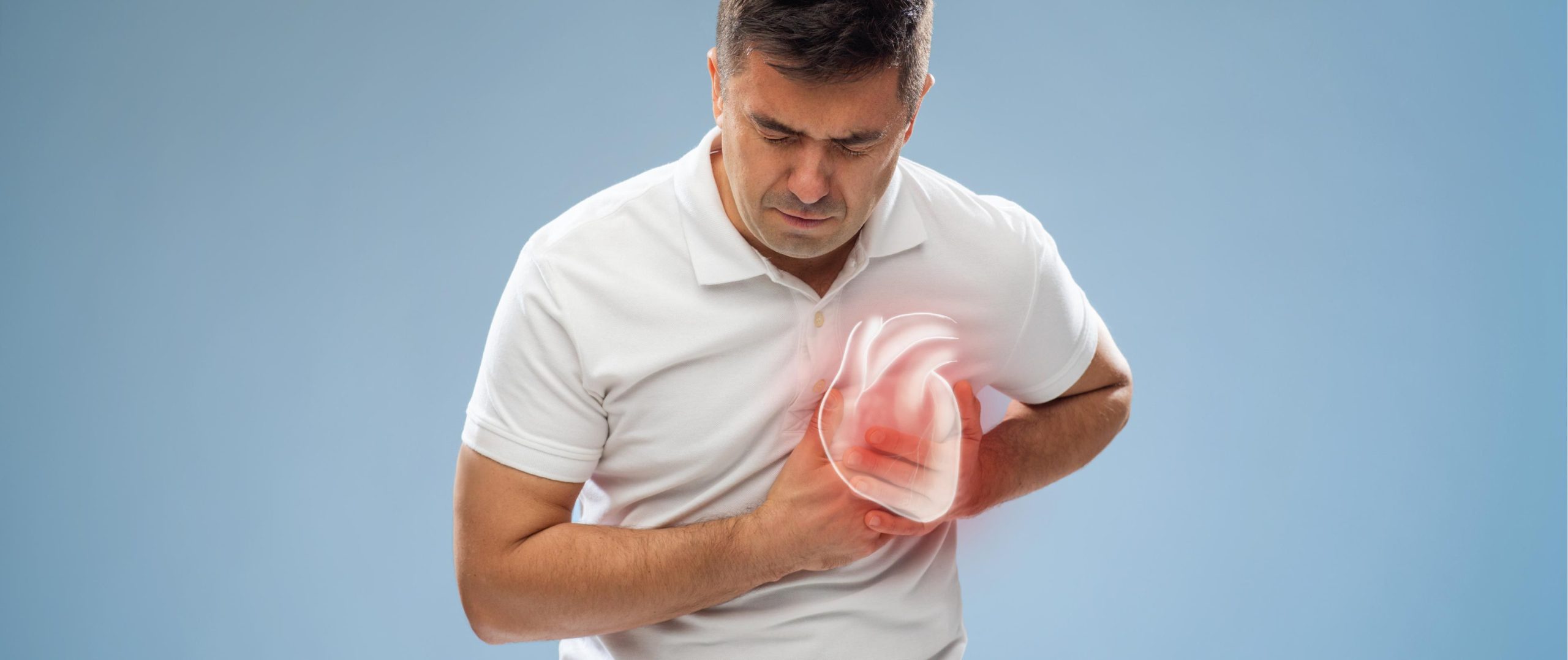
Key facts
- A heart attack occurs when the blood supply to your heart is blocked and your heart muscle can’t get enough oxygen.
- Common symptoms of a heart attack are chest pain, feeling breathless and sweating.
- Heart attacks are mostly caused by coronary heart disease.
- You can reduce your risk of having a heart attack by adopting a healthy lifestyle.
What is a heart attack?
To work properly, your heart needs a continuous supply of blood. It normally receives this from blood vessels called coronary arteries.
When a coronary artery suddenly becomes blocked, oxygen can’t get to your heart muscle. This causes a heart attack (or ‘myocardial infarction’).
A heart attack is a medical emergency: without oxygen, your heart muscle begins to die and your heart can become permanently damaged.
Heart attacks can be fatal — every day, 17 Australians die from a heart attack. One patient is admitted to hospital due to heart attack every 13 minutes.
What are the symptoms of a heart attack?
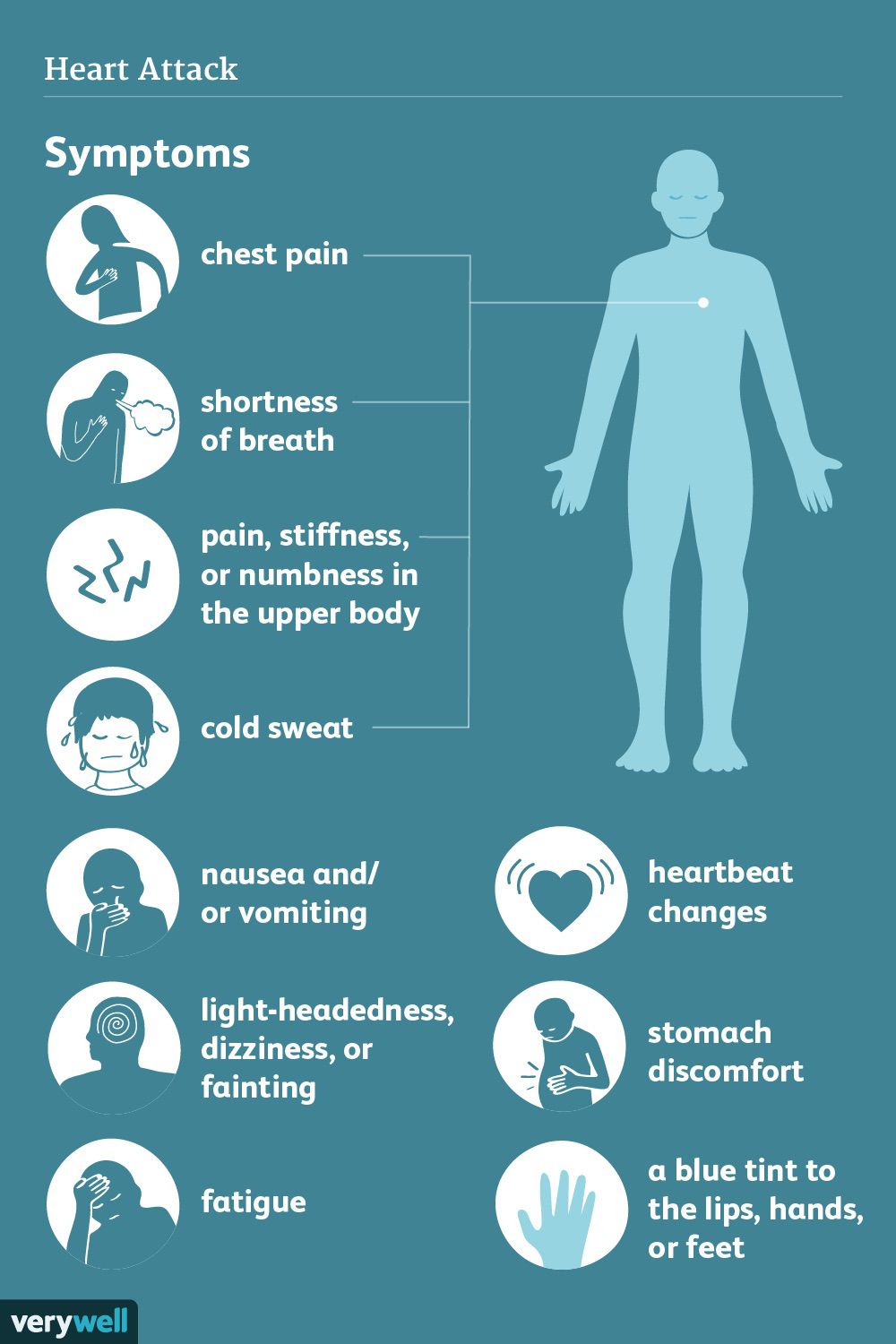
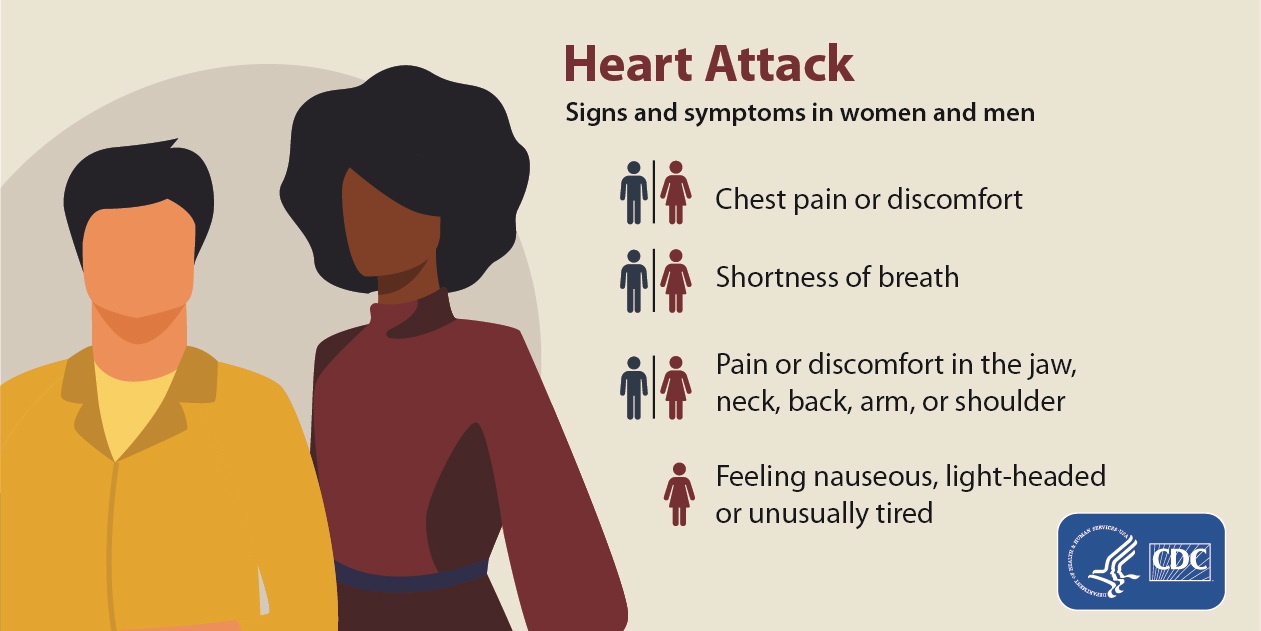
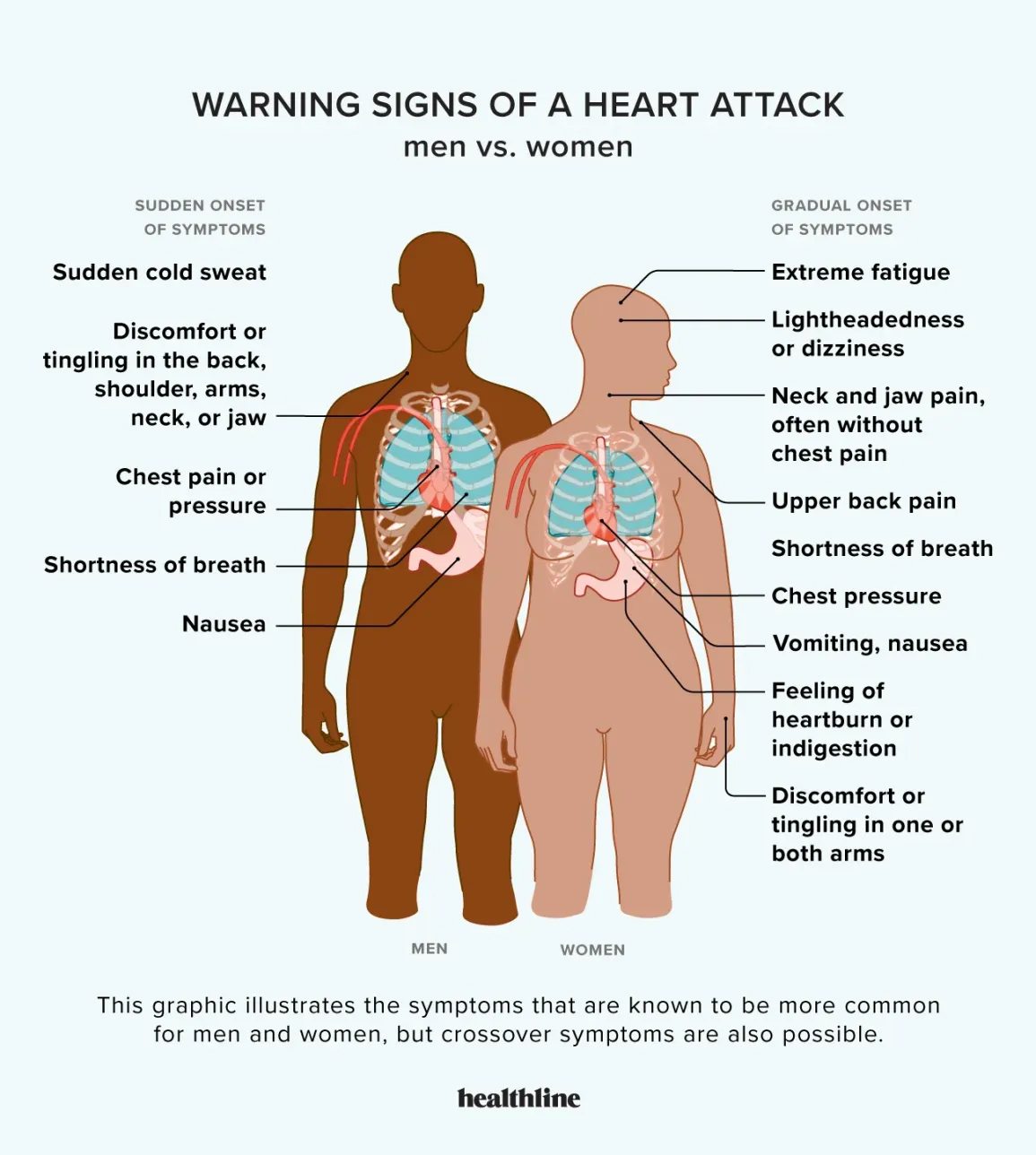
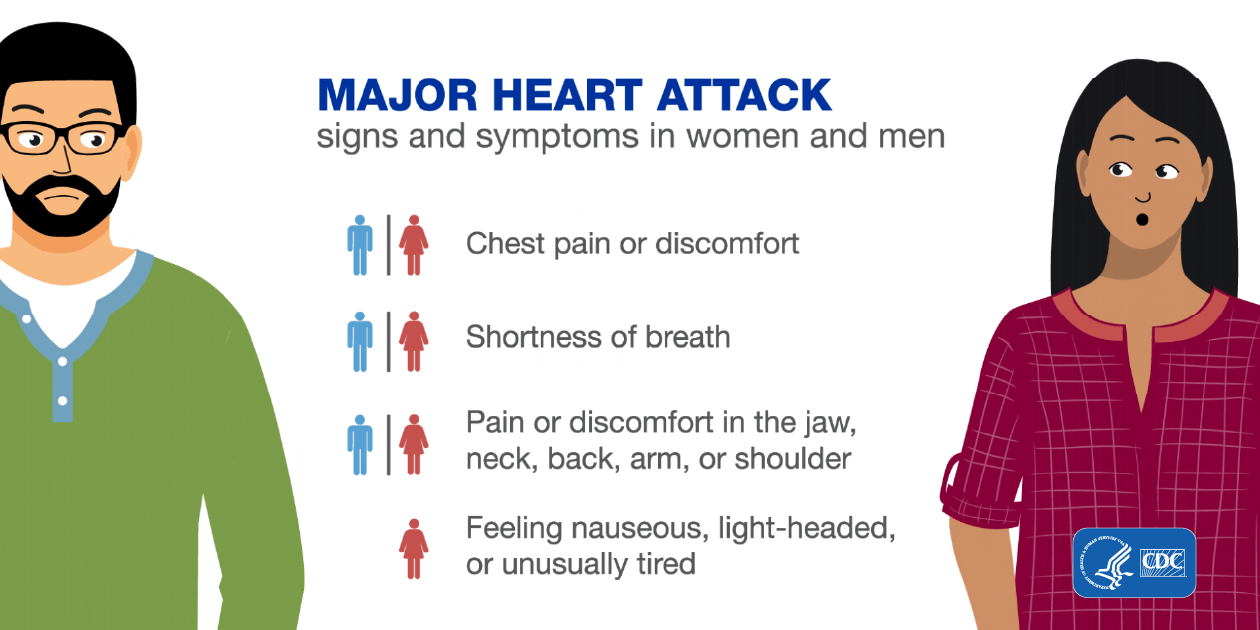
The most common symptoms of a heart attack are:
- chest pain — pressure or tightness in your chest that may spread to your jaw, neck or left arm
- suddenly feeling dizzy, faint, light-headed or anxious
- nausea or vomiting
- a feeling of indigestion
- sweating, or a cold sweat
- looking pale
- shortness of breath or difficulty breathing
- palpitations (being aware of your heart beating)
Chest pain may come and go.
Heart attack symptoms in females
Females may experience different symptoms, such as:
- breathlessness and generally feeling unwell
- tightness or discomfort in your arms
- chest pain that feels more like burning, throbbing, tightness or like trapped wind
- a feeling of indigestion or upper tummy pain
- upper back pain or pressure
Heart attack symptoms differ from person to person. Some people experience no warning signs before a heart attack. It’s possible to not feel any chest pain at all.
What causes heart attacks?
The most common cause of a heart attack is coronary artery disease. This is where fatty deposits, cholesterol and other substances build up in the walls of your coronary arteries that supply oxygen to your heart.
Over time, this build-up hardens into cholesterol plaques. The plaque can rupture (burst) and cause a blood clot which blocks your artery.
In some cases, heart attacks have another cause.
- Coronary artery spasm (variant angina) is an unusual narrowing of blood vessels that can stop blood flow to your heart.
- Spontaneous coronary artery dissection is a sudden tear in the wall of your coronary artery.
Certain lifestyle factors are shown to increase your chances of having a heart attack. These include:
- smoking
- an unhealthy diet high in saturated fat, salt and added sugar
- not getting enough physical activity
- having high blood pressure
- having high cholesterol
- having diabetes
- being overweight or obese
How are heart attacks diagnosed?
If you think you might be having a heart attack, you need immediate assessment in hospital. There, a doctor will assess your symptoms and check your vital signs, including your blood pressure, pulse and temperature.
There are several tests that help show if you’ve had a heart attack, and whether any damage was caused. These include:
- electrocardiogram (ECG) — electrical leads are placed on your chest, arms and legs to record the electrical signals travelling through your heart muscle
- troponin blood tests
- chest x-ray
- angiography (or, cardiac catheterisation) — a small tube (catheter) is inserted into an artery in your groin or your wrist, which can then be guided to your heart where a special dye is injected into the coronary arteries to show if there is a narrowing or blockage
- echocardiogram — an ultrasound scan of your heart
- CT scan or MRI scan of the heart
How are heart attacks treated?
When treating a heart attack it is important to restore blood flow to your heart quickly. Heart muscle cells depend on oxygen and the longer your heart is without oxygen, the more permanent and widespread the damage.
Treating the blocked artery
Treatments that can restore blood flow to your heart include the following.
- Coronary angioplasty is a procedure where the blocked coronary artery is opened up from the inside using a special balloon inserted during cardiac catheterisation. Your artery may then be kept open with a special metal tube (stent).
- Thrombolytic therapy uses a medicine to dissolve the blood clot in your blocked coronary artery.
- Bypass surgery (coronary artery bypass graft surgery, or CABG) is open heart surgery that involves redirecting blood to bypass (go around) the blockage in your coronary artery.
Medications
Medicines are given to treat a heart attack and prevent the risk of another heart attack. These include:
- pain relievers
- medicines that reduce the blood’s clotting action, such as aspirin, or other blood-thinning medicines
- nitrate medicines to improve blood flow through the coronary arteries
- heart and blood pressure medicines (ACE inhibitors, angiotensin II receptor blockers, beta blockers)
- cholesterol-lowering medicines
Cardiac rehabilitation
If you are recovering from a heart attack you may be referred for cardiac rehabilitation. This service provides support during your recovery and helps reduce your risk of heart disease.
How can I prevent a heart attack?
Making positive lifestyle changes is the best way to lower your risk of a heart attack.
There are a number of ways you can improve your heart health:
- quitting smoking
- eating a healthy diet
- seeing your doctor to help manage your cholesterol and blood pressure
- staying physically active and exercising regularly
- maintaining a healthy weight
- drinking alcohol in moderation
- reducing stress and looking after your mental wellbeing
There are also other risk factors that you can’t control, like your: age, sex, ethnicity and family history.
Speak with your doctor if you’re concerned about your risk factors. They can give you tips on how you can reduce your risk of a heart attack.
Complications of a heart attack
Complications following a heart attack can be serious. Some complications include the following:
- Arrhythmias — your heart may develop an abnormal heartbeat following a heart attack due to your damaged heart muscle disrupting electrical signals.
- Heart failure — your heart may have difficulty pumping enough blood, due to the muscles being too weak or too stiff.
- Cardiogenic shock — a life-threatening condition where your heart suddenly can’t pump enough blood to your body.
- Heart rupture — this is a rare but serious complication in which your heart’s muscles, walls or valves split apart.
Is a cardiac arrest the same thing as a heart attack?
A cardiac arrest and a heart attack are both medical emergencies. However, they are not the same thing.
During a cardiac arrest, the electrical system that controls your heart rate and rhythm stops working properly, and your heart stops beating.
Someone having a cardiac arrest will collapse and have no pulse. They may not breathe properly, or not at all, and they will lose consciousness.
While waiting for the ambulance to arrive, begin chest compressions (cardiopulmonary resuscitation or CPR). Use a device called a defibrillator, if available.
Sometimes a heart attack can progress into a cardiac arrest.
Does COVID-19 cause heart attacks?
A heart attack is a possible complication of COVID-19. COVID-19 can also worsen existing heart conditions.
When people with cardiovascular disease catch COVID-19, they have a higher risk of severe complications.
Get vaccinated against COVID-19 and the flu to help protect yourself and others.
The Heart Foundation has more information about COVID-19 and heart disease.
Life after a heart attack
Recovering from a heart attack can be both emotionally and physically challenging. Hearing stories from others who have experienced a heart attack can help.
The Heart Foundation have shared several people’s “heart stories” on their website.

